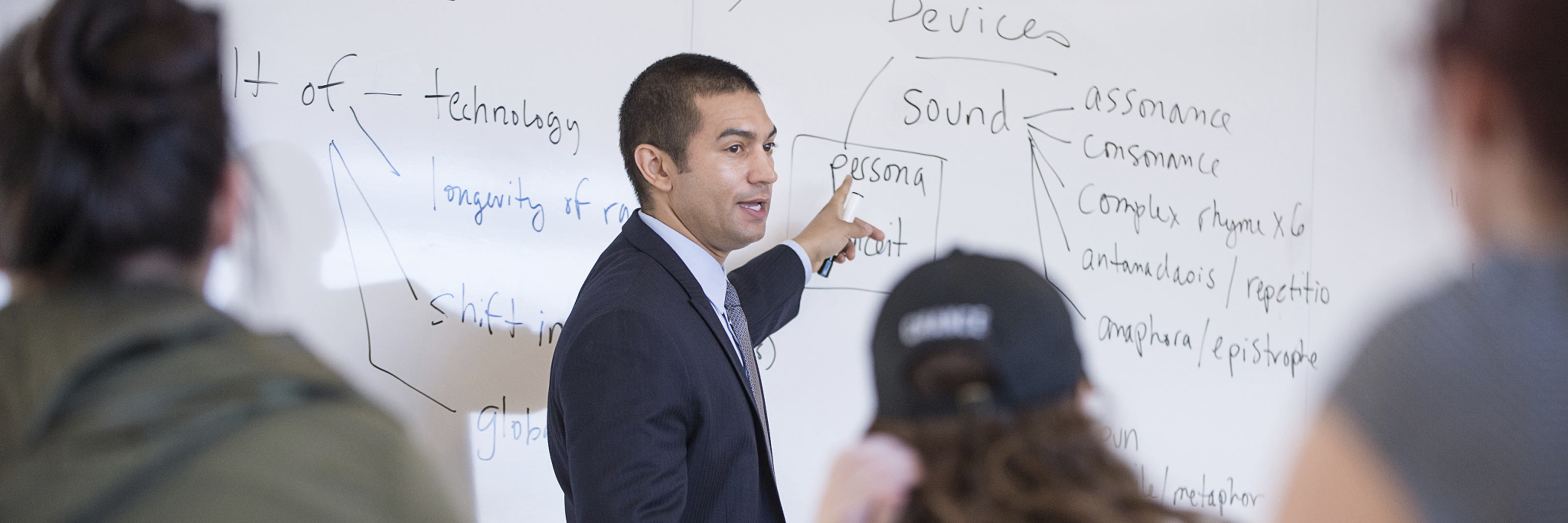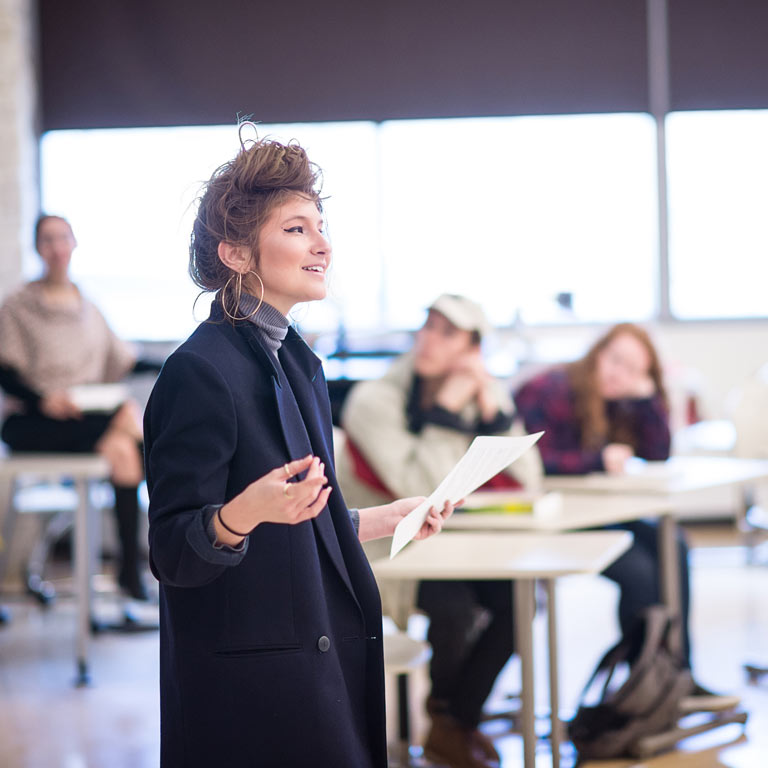Because of the rigor with which they practice their craft, English students excel as writers. They learn how to formulate ideas, drafting and revising their points with lucid and compelling language. Their best writing has persuasive force, appearing to have been constructed with ease. In truth, these abilities are acquired over time, with the help of other good writers.
In a world filled with information, much of it deliberately misleading or confusing, students of English learn how to disentangle truth and fiction. They can become technical writers, translating the coded shorthand used in many professions to explain both basic and sophisticated information. They work with experts in the arts and sciences to help convey complex ideas. They may go into law, politics, education, public relations, or business—every profession benefits from this kind of discernment.
Students of English pay attention to people at all levels of literacy to broadcast emotional truths and communicate dramatic stories. They understand nuance and subtle distinctions—whether used in advertising copy, fiction, critical writing, or poetry. They notice the relations between visual and verbal images. They know what metaphor is.
English majors and graduate students learn how to read so that they can identify whatever is most significant. They interpret social change with the help of cultural documents, using Shakespeare, Dickens, or Zadie Smith to open up the mysteries and provisional truths of the past and present. They pay attention to continuity, and to what changes suddenly over chasms of geography, shifting political or social realities, and historical time.
English students analyze complicated problems through close readings of competing discourses. They learn how to read critically and argue persuasively, understanding the extent to which ideology, rhetoric, and argumentation impact our lives. They delight in comedy, too.
In addition to these practical and necessary skills, students of English use both reading and writing to gratify the imagination. They think beyond the quotidian to help others stretch their thinking and expand their empathic horizons. They use language in all of its beauty and power to help make sense of every dimension of the world.




 The College of Arts
The College of Arts